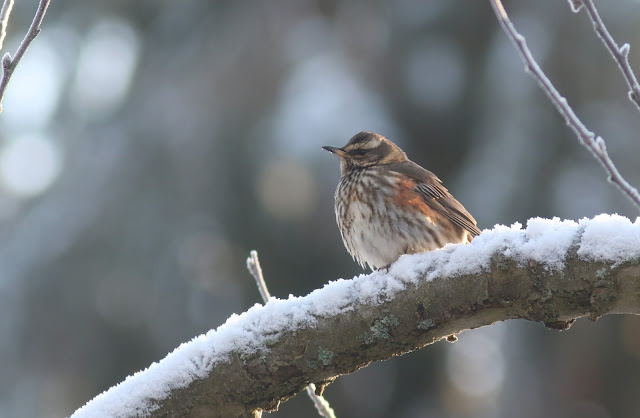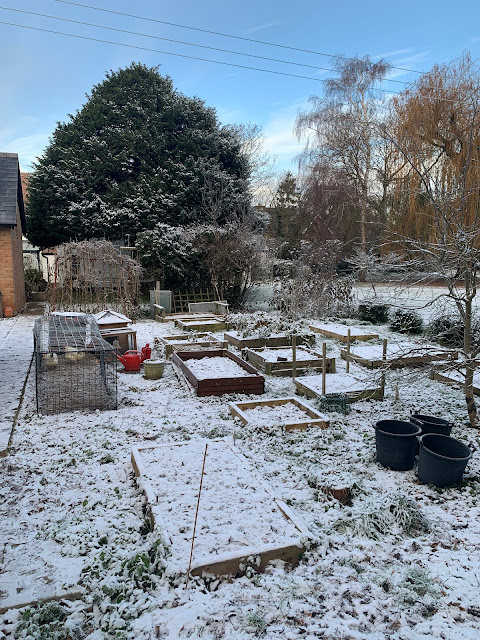Pages
Thursday, 29 December 2022
Surviving the ecological emergency part 3
Tuesday, 27 December 2022
Surviving the ecological emergency part 2
Sunday, 25 December 2022
Surviving the ecological emergency. part 1
Thursday, 22 December 2022
Corvo Birding on CNN
CNN have made this nice little documentary on Corvo birding. Features video of a few nice birds including the WP's first Prairie Warbler, short interviews with birders and local people and a bit of background to the whole phenomenon.
Tuesday, 20 December 2022
West Papua videos
Keith has produced some videos of our West Papua trip.
West Papua September
2022
This film is from an expedition with Wise Birding
Holidays to West Papua in September 2022.
Part 1 starts with a boat trip around Jakarta Bay, as we
had a day on Java before flying to West Papua. It then covers the lowland
forest of Nimbokrang and the start of our period in the Arfak Mountains.
These are the sites and order that the birds appear
Jakarta Bay
Milky Stork
Javan Plover
Lesser Sand Plover
Pied Stilt
Sunda Coucal
White-breasted Waterhen
Great White Egret
Little Black Cormorant
White-bellied Sea-eagle
Christmas Island Frigatebird
Lesser Frigatebird
White-naped Tern
Great Crested Tern
Common Tern (ssp longipennis)
Small Blue Kingfisher
Grey Heron
Purple Heron
Journey from Jayapura to Nimbokrang
Lesser Black Coucal
A bug where the male protects their female
Grand Munia
Streak-headed Munia
Nimbokrang
Twelve-wired Bird-of-paradise
Pale-billed Sicklebill
Bats
Damselflies and Dragonflies
Black-browed triller
Long-tailed Honey-buzzard
Buff-faced Pygmy-parrot
Orange-bellied Fruit-dove
Red-cheeked Parrot female
Papuan Frogmouth
Channel-billed Cuckoo
Sulphur-crested Cockatoo
Magnificent Riflebird
Lesser Bird-of-paradise
Meyer's Friarbird
Golden Monarch
Blyth's Hornbill
Marbled Frogmouth
Arfak Mountains
Magnificent Bird-of-paradise
Arfak Honeyeater
Black-breasted Boatbill
Vogelkop Melidectes
Mountain Owlet-nightjar
Black-billed Cuckoo-dove
Part 2 continues our time in the Arfak Mountains,
including the hike up to German Camp, then continues to the lowland forest at
Malagufuk.
Arfak Mountains
Black Sicklebill female
Vogelkop Lophorina
Western Parotia including an immature dancing
Feline Owlet-nightjar
Long-tailed Paradigalla
Regent Whistler female
Black-throated Robin
Song of Lesser Ground-robin
Yellow-billed Lorikeet
Modest Tiger-parrot
Papuan Flycatcher
Skink
Spectacled Longbill
Longhorn beetle
Rhinocerous beetle
Butterfly
Grey Thornbill
Mountain Peltops
Masked Bowerbird
Sulphur-crested Cockatoo
Butterflies
Malagufuk
Spangled Drongo
Black Cicadabird female
Brown-breasted Gerygone
Pinon's Imperial-pigeon
Jumping spider
Black Lory
King Bird-of-paradise
Wompoo Fruit-dove
Millipede
Yellow-billed Kingfisher
Freshwater Crab
Wallace's Owlet-nightjar
Pinon's Imperial-pigeon
Dollarbird
Hook-billed Kingfisher
Emperor Fairywren
Golden Myna
Termites
Red-breasted Paradise-kingfisher
The final part of the film covers Waigeo Island and the
ferry trip there and back.
Ferry to Waigeo
Red-necked Phalarope
Red-footed Booby
Moustached Treeswift
Lesser Frigatebird
Wilson's Bird-of-paradise
Papuan Pitta
Butterfly
Beach Kingfisher
Glossy-mantled Manucode
Western Crowned-pigeon
Palm Cockatoo
Fruit Bat
Red Bird-of-paradise
Dusky Megapode
Northern Fantail
Frilled Monarch
Dragonfly
Osprey
Olive-backed Sunbird
Puff-backed Honeyeater
Island Whistler
White-breasted Woodswallow
Lesser Frigatebird
Fruit Bats leaving their roost
Beach Kingfisher
jumping fish
Longfin Batfish
Yellow-faced Myna
Pacific Swallow
Tree Sparrow
Short-finned Pilot Whale
Sunday, 18 December 2022
End of the Cold Spell
It's been down to minus 10 here at the Old Vic during the week with temperatures below freezing for several days. Surprisingly not that much impact on the birds (as far as I know not that much in the way of vis mig i.e just the odd Golden Plover at Beddington). Perhaps as it's December (relatively early for hard weather movements) and also due to the surprising lack of wind, birds overall seem to have either gone over high (its been clear skies) or held their ground somewhat.
A couple of small groups of Lapwing and an increase in the approachability of winter thrushes was all I noticed in the garden.


















%20March.jpeg)

%20March.JPG)











%20April.JPG)











%20Grey%20Arches,%20Steve's,%20June.JPG)




















%20August.JPG)
























